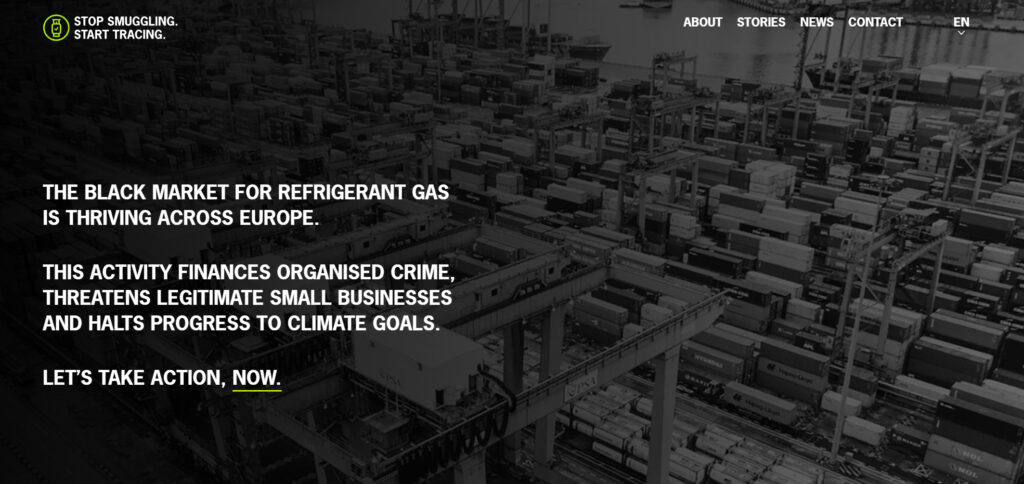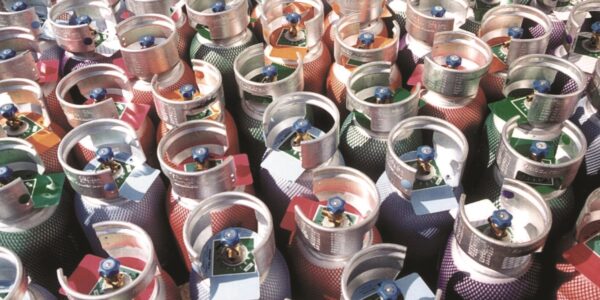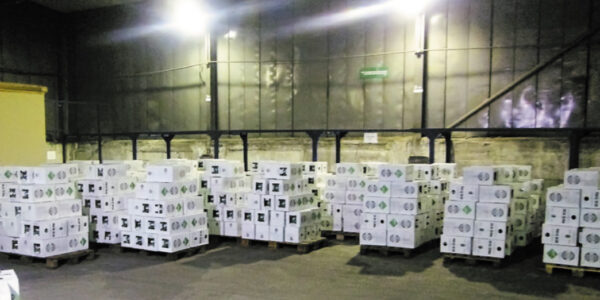F-Gas breaches remain rife in Europe
- PostedPublished 17 July 2020
Scale of Europe’s illegal refrigerant trade revealed, but not all bad news
An audit carried out by the Norwegian Environment Agency has revealed widespread breaches of F-gas regulations, according to UK specialist outlet Cooling Post.
The agency carried out an audit of 20 heat pump distributors and discovered that more than half violated F-gas regulations. In many cases, the distributors could not verify that the equipment – which contained HFCs – had been installed by a certified person or company.
Many selling refrigerant were also not keeping proper records or checking that those buying the refrigerant were certified to do so. As a result, the agency will deliver new supervisory advice to those dealing in HFC equipment and refrigerants – and the companies are said to have already instated new procedures to comply with the regulations.
The European F-gas regulations, which were introduced in 2015, are designed to reduce the circulation and use of fluorinated greenhouse gases that contribute to climate change.
However, the regulations implemented by the European Commission (EC) are often not enforced by the member states of the European Union (EU).
The regulations also prompted a surge in illegal trade, due to reduced refrigerant availability and rising prices.
Earlier this year, João Ferreira – a member of the European parliament – quizzed the EC about its handling of refrigerant regulations.
In a letter published on March 30, EC executive vice-president Frans Timmermans acknowledged that the EC was aware of illegal HFC imports.
Despite evidence to the contrary, he stated that “no reliable data” existed regarding illegal quota-circumventing HFC imports and the common use of banned non-refillable containers.
“The Commission is taking measures to ensure the correct implementation of the Regulation,” said Timmermans, “and, in cooperation with the relevant competent authorities of the Member States and industry, is doing everything it can to tackle the issue of illegal import.”

Timmermans also added that businesses could assist in the issue by “not buying HFCs at suspiciously low prices.”
A new website, launched by the European Fluorocarbons Technical Committee (EFCTC) – a body that represents European fluorocarbon manufacturers – should however help the fight against illegal HFC imports and sales. The website, stopillegalcooling.eu, is dedicated to providing news, advice and updates about illegal HFCs. It also contains a link to the EFCTC’s Action Line, which can be used to report breaches of the F-gas regulations.
A new report from investigative firm Kroll, based in New York and commissioned by the EFCTC, has further detailed how the illegal material is getting into the EU. Kroll researched 228 reports of illegal imports throughout 2019 and concluded that the vast majority were entering through means such as misdirected transhipments, open smuggling and counterfeit products.
Hundreds of shipments from China were also identified by Kroll, which shared its intelligence with member states – resulting in an array of refrigerant seizures. It also requested 444 takedowns of illegal single-use refrigerant canisters that were being offered online.
In total, Kroll claims evidence of illegal HFC imports totalling 3000 tonnes in March to December 2019.
“The numerous ways HFCs are crossing European borders is truly concerning and shows this problem requires a concerted approach,” said Mark Vergnano, president and CEO of Chemours and member of the EFCTC.
“However, the new findings do show that efforts to stop illegal imports are starting to have an impact.”
This was reinforced by subsequent news from Cooling Post that Bulgarian customs officers had seized 490kg of illegal non-refillable containers of R134a and R404A.
The refrigerants, which were being brought in from Turkey, were concealed in a truck among other goods.
Elsewhere, the United Nations’ OzonAction programme has recently allowed China and Thailand to prevent the export of 72 tonnes of banned R22 refrigerant, an ozone-depleting HCFC.
OzonAction offers a tool called “informal Prior Informed Consent” (iPIC), which allows for voluntary sharing of details about ozone-depleting substances and HFCs.
In this case, it allowed for both countries to establish that a submitted export request for the R22 was fraudulent and its application was promptly rejected, preventing the illegal export of the ozone-depleting refrigerant.
A subsequent investigation revealed a third-party broker using counterfeit licences to submit export requests, but the broker could not be traced further due to falsified documentation.
Nevertheless, the respective efforts and use of the iPIC system demonstrated what is possible when resources are pooled and collaboration is encouraged.
Cooling Post Editor slams F-Gas enforcement
Neil Everitt, editor of specialist UK outlet Cooling Post, has published an incendiary opinion column that slates the lack of F-gas regulation enforcement in Europe.
“It would be argued that Europe, with its F-gas regulations and its more recent HFC phase down timetable, has led the world in dealing with high global warming potential gases,” said Everitt.
“Far from being a global template for HFC reductions, the continuing lack of any sort of concerted action to ensure compliance is making a mockery of the European F-gas regulations.”
The piece, titled ‘Let’s face it, the F-gas regs aren’t working’, was in part prompted by the measures that European states have introduced to tackle the COVID-19 pandemic.
In response to the viral threat, many member states have rolled out myriad controls and testing mechanisms that are being precisely and steadfastly employed.

Yet, when it comes to enforcing F-gas regulations – essential to helping protect against global warming and vital to our future – many states are seemingly doing little to meaningfully enforce them. It is evident, in some cases, that the rules are seemingly not understood.
The F-gas regulations, which are focused on high-GWP fluorinated gases such as HFCs, were introduced in 2015 to phase down their usage.
The regulations also sought to ban the use of F-gases in new applications, prevent leaks and ensure the proper recovery of old gases.
Disposable refrigerant cylinders, for example, are illegal due to the ‘heel’ of gas that may remain when the container is emptied. However, these containers are still rife in Europe and rarely questioned.
“According to the European Environment Agency, the EU’s 2018 phase down target was achieved by the colossal margin of 1 per cent,” said Everitt.
“Of course, this single statistic completely ignores the overt and blatant illegal sales of refrigerant over the past few years.”
EU refrigerant prices falling
Independent German research institute Öko-Recherche, says HFC refrigerant prices are continuing to fall in the European Union (EU).
Prices for HFCs such as R410A and R134a had peaked in the first half of 2018, due to the phase-down of refrigerants with high GWP.
This move, which is a key part of the 2015 European F-Gas regulations, aims to drive HFC users towards low-GWP technologies.
The cost of refrigerants began to fall after this point, in part due to some oversupply, and the latest report for the fourth quarter demonstrates that trend continuing – although the latest price reductions are lower than those from previous quarters.
UK specialist publication Cooling Post, reporting on the latest release from Öko-Recherche, highlighted that prices were still four to six times higher than 2017.
Demand is also stated to be lower than at the start of 2017, which is perhaps unsurprising given the high costs, and only a handful of companies noted issues with refrigerant availability.
While price reductions and adequate supply are unquestionably positive traits, the cost of HFCs is still significantly higher than three years ago.
As a result, the extensive illegal trade spurred on by the high prices and low enforcement will no doubt continue.
- CategoriesIn SightGlass
- TagsEurope, F-Gas, Illegal refrigerant, illegal refrigerants, SightGlass News Issue 20





